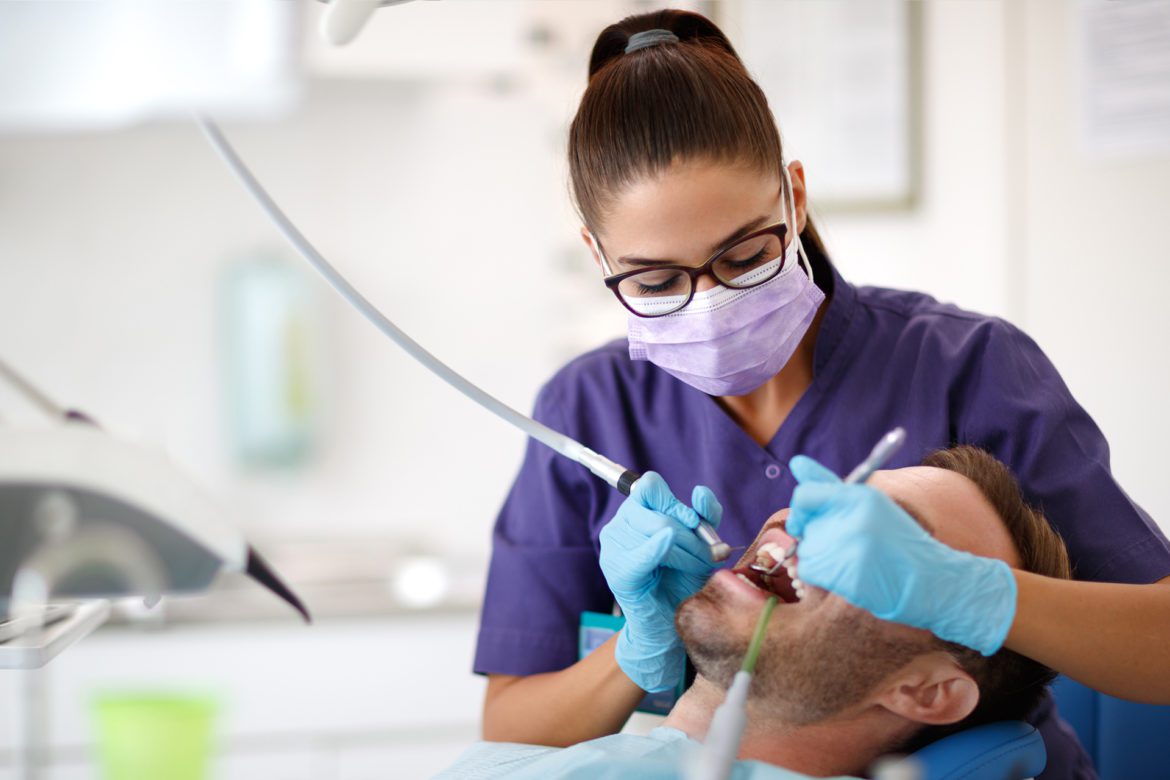A Prosthodontist focuses on the restoration of the natural teeth and/or the replacement of missing teeth. Prosthodontists also treat other mouth, face, and jaw issues.
Throughout history, the functional and aesthetic value of the teeth has always been appreciated.
Ancient cultures around the world experimented with tooth replacement methods, often with mixed results. Thankfully, by the 20th century, the processes used to create and install dental appliances became more standardized, and the National Society of Denture Prosthetics, known today as the Academy of Prosthodontics, was formed.
Prosthodontists continue to improve their craft today, as the available materials, technology, and techniques improve each year. With leading “oral architects” Dr. Huang and Dr. Chi on staff,  PearlFection Dentistry in Frederick, MD and Urbana, MD provides unmatched convenience and expertise for patients in need of dental prosthetics and other advanced restorative or cosmetic treatments.
What is a Prosthodontist?
According to the American Dental Association (ADA) definition, a prosthodontist is a dental specialist who focuses on the restoration of the natural teeth and/or the replacement of missing teeth with artificial substitutes (prostheses). Prosthodontists also treat other mouth, face, and jaw issues through specialized surgical procedures and appliances.
Denture Specialists vs Regular Dentist
Although many general dentists also include tooth replacement and cosmetic dentistry in their practice, prosthodontists are recognized as the experts due to their extensive education, training, and experience. The prosthodontist also works closely with a qualified dental lab, where skilled technicians combine art and science to create realistic crowns, dentures, and bridges to match a patient’s natural smile.
What does a Prosthodontist do?
For most prosthodontists, the primary focus is on tooth replacement (restorative dentistry), although they also diagnose and treat a variety of health issues including sleep apnea, cleft palates, and other congenital or trauma-related facial issues.
Options for replacing missing or damaged teeth
Restorative dentistry includes basic crowns, veneers, and bridges along with dentures and dental implants.
- Bridges are removable appliances linking two or more crowns together that fit on top of or between natural teeth. A dental bridge is a less invasive way to remedy gaps in the smile without implant surgery.
- Dentures are larger appliances used to replace most or all of the upper and/or lower teeth (arch). Some are temporarily fixed in place by the patient using a safe dental adhesive, while an implant supported denture is permanently installed and secured to the jawbone.
Other treatments and procedures performed by prosthodontists
- Sleep apnea treatment – Sleep apnea affects millions of people, causing soft tissues in the throat to collapse and obstruct the airway during sleep. This can lead to disruptive snoring, exhaustion, and other physical issues. Using specialized dental appliances, prosthodontists can manage and alleviate sleep apnea symptoms.
- Maxillofacial procedures – Qualified prosthodontists work with patients to reconstruct facial features including the nose, ears, eyes, and jaw when a correction is needed due to cancer, trauma, or congenital issues. Dr. Chi of PearlFection Dentistry has to his credit a fellowship in Oral Oncology and Maxillofacial Prosthodontics from the University of Texas. His research in this field has been recognized on numerous occasions.
- Same day denture – Comprehensive, full-service dental offices offer same day denture and crown service when time is of the essence. Computer-Aided Design/Computer-Aided Manufacturing (CAD/CAM) technology makes it possible to fabricate laboratory-grade crowns and dentures in the office in just minutes.

